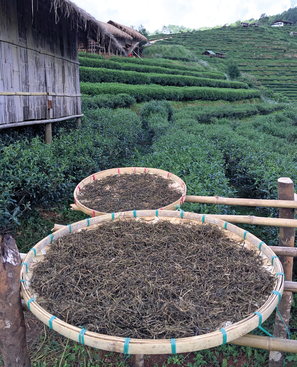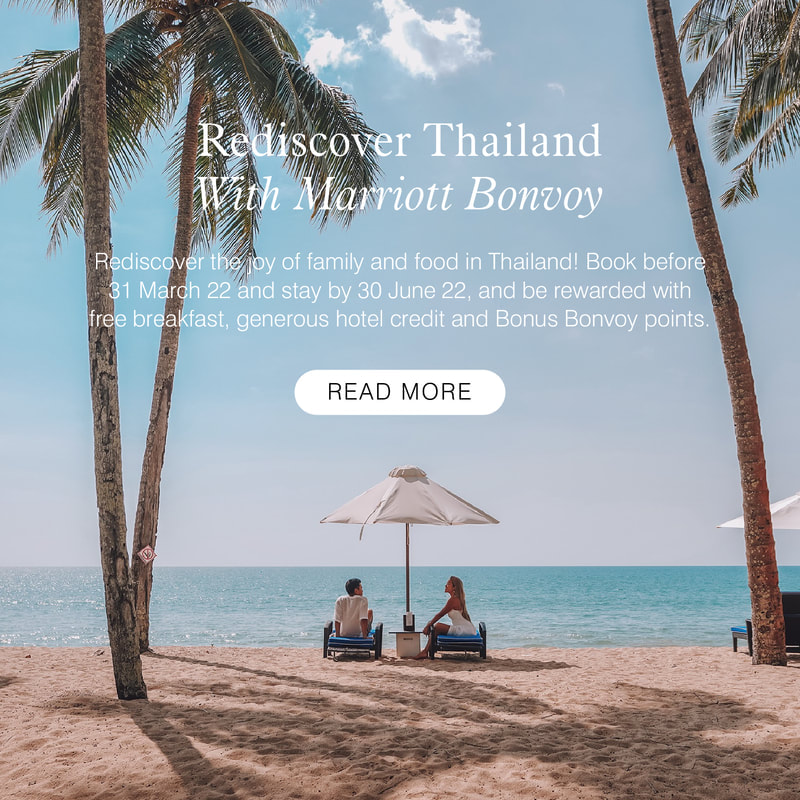by David James
WHEN a hotel in Thailand equips all its room with electric blankets, you know the future is looking warm. This is the first of many surprises in the gorgeous hill resort of Doi Angkhang, located in the distant mountains of northern Thailand, a shout or two from the Burmese border.
The hotel is the Angkhang Nature Resort, which recognises the need for special guest comforts in a place which experiences some of the lowest temperatures anywhere in the kingdom. The electric blankets are, of course, optional but with the thermometer dropping to 13 degrees C in January, they can be most welcome. The hotel is set beside the Royal Agricultural Station Angkhang, the first research centre of its kind founded by King Bhumibol Adulyadej in 1969.
The station researches and cultivates temperate climate fruits, flowers, and vegetables. At present, it boasts a surprisingly diverse range of temperate fruits such as raspberries, peaches, plums, kiwis, and strawberries, and more than 60 species of vegetables, including carrots, Brussels sprouts, and peas. Also cultivated are some 50 species of temperate flowers such as carnations and roses.
WHEN a hotel in Thailand equips all its room with electric blankets, you know the future is looking warm. This is the first of many surprises in the gorgeous hill resort of Doi Angkhang, located in the distant mountains of northern Thailand, a shout or two from the Burmese border.
The hotel is the Angkhang Nature Resort, which recognises the need for special guest comforts in a place which experiences some of the lowest temperatures anywhere in the kingdom. The electric blankets are, of course, optional but with the thermometer dropping to 13 degrees C in January, they can be most welcome. The hotel is set beside the Royal Agricultural Station Angkhang, the first research centre of its kind founded by King Bhumibol Adulyadej in 1969.
The station researches and cultivates temperate climate fruits, flowers, and vegetables. At present, it boasts a surprisingly diverse range of temperate fruits such as raspberries, peaches, plums, kiwis, and strawberries, and more than 60 species of vegetables, including carrots, Brussels sprouts, and peas. Also cultivated are some 50 species of temperate flowers such as carnations and roses.
Set in a valley 1,400m above sea level, and covering an area of almost 2,000 rais, the station is surrounded by thickly wooded mountains creating one of the most beautiful natural scenes in Thailand. In northern dialect the word “angkhang” means bowl, while “doi” means mountain. Doi Angkhang is 1,930m high and offers stunning views of the plateau below and the many other mountains in this still largely pristine corner of Southeast Asia.
The station is a wonderful testimony to the late King and his amazing foresight and dedication in finding ways to improve the life his people, for as recently as the 1960s Doi Angkhang was a remote and isolated region where refugees from Yunnan in China and various hill tribes lived by illegal logging and growing opium, peaches and rice. Without education or medical treatment, they existed in poverty.
The station is a wonderful testimony to the late King and his amazing foresight and dedication in finding ways to improve the life his people, for as recently as the 1960s Doi Angkhang was a remote and isolated region where refugees from Yunnan in China and various hill tribes lived by illegal logging and growing opium, peaches and rice. Without education or medical treatment, they existed in poverty.
| Chairman and Director of the Royal Project Foundation, HSH Prince Bhisadej Rajani, says the King first visited the region in 1969, where he saw for himself that there were poppies and peach trees, but the hillsides had been extensively deforested through slash and burn cultivation. To remedy the situation, the King purchased land to set up the first agricultural research station for temperate fruit, vegetables, trees and flowers. “His Majesty asked us to find temperate fruit to grow on Angkhang, because he thought that income from the fruit would be higher than from poppies,” explained Prince Bhisadej. Visitors to this magnificent region can see evidence of other goals set by King Bhumibol. The hillsides are now recovered in new forests and agricultural plots, including tea plantations neatly arranged on terraces, which have helped eliminate poppy cultivation. There are in addition four schools providing education for children, a medical centre for the villagers, and good quality roads with links to Fang, Chiang Dao and Chiang Mai. |
Visitors to the station can wander at leisure through landscaped flower and bonsai gardens, vegetable beds as well as displays of exotic and indigenous plants. It also boasts a rockery.
Other facilities include a restaurant and guesthouse, which is often booked for months in advance. The entrance fee is 50 baht per vehicle and 50 baht per adult. Bicycles can be rented and pony rides around the project are available. Several campsites are located here too. It takes about three hours to drive to Doi Angkhang from Chiang Mai. The journey passes through some of Thailand’s most spectacular scenery. Drivers should be aware that the road from the foot of the mountain is steep and involves many tight bends, so it’s not for the inexperienced.
The mountain location, cool climate and beauty of the surrounding countryside are outstanding. You may not need those electric blankets, but do take a light jacket or sweater.
Other facilities include a restaurant and guesthouse, which is often booked for months in advance. The entrance fee is 50 baht per vehicle and 50 baht per adult. Bicycles can be rented and pony rides around the project are available. Several campsites are located here too. It takes about three hours to drive to Doi Angkhang from Chiang Mai. The journey passes through some of Thailand’s most spectacular scenery. Drivers should be aware that the road from the foot of the mountain is steep and involves many tight bends, so it’s not for the inexperienced.
The mountain location, cool climate and beauty of the surrounding countryside are outstanding. You may not need those electric blankets, but do take a light jacket or sweater.

















